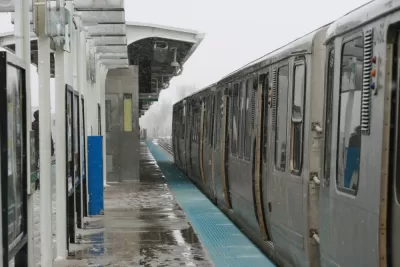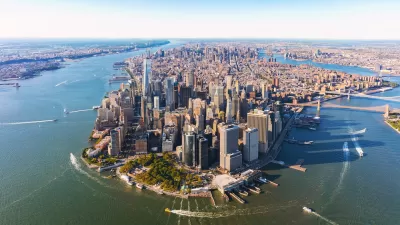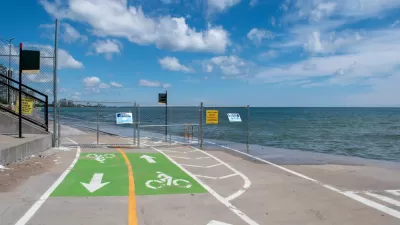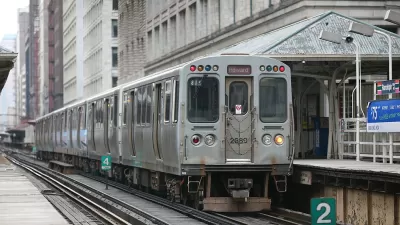Chicago Mayor Lori Lightfoot on Earth Day announced the forthcoming release of a new plan to reduce greenhouse gas emissions and prepare communities for the effects of climate change.

The office of Chicago Mayor Lori Lightfoot recently launched a 2022 Climate Action Plan, promising “to reduce carbon emissions while also increasing household savings, advancing environmental justice, and improving community health.”
John Greenfield reports on the new climate action plan for the city of Chicago, first noting Mayor Lightfoot’s less-than-stellar record on climate change action: “Given that Chicago mayor Lori Lightfoot recently called our multi-modal metropolis ‘a car city,’ and is currently advancing a plan to spend $7.5 million in taxpayer money on free gas cards, in effect paying people to create more greenhouse emissions, you could be forgiven for assuming that she doesn’t give a hoot about climate change."
As explained by Greenfield, Mayor Lightfoot’s a Climate Action Plan hasn’t actually been released in full, but the announcement was timed for Earth Day, so that explains the preemptory announcement. Plenty of work on the final plan has already taken place, however, including listening sessions, town halls, and a public comment period.
As reported by Greenfield, the 2022 Climate Action Plan will be built around five pillars: 1) lowering energy costs and implementing renewable energy for household consumption, 2) reducing waste, 3) creating a zero-emission transportation system, 4) committing to 100 percent clean energy for city operations by 2025 and for the entire city by 2035, and 5) investing in community resilience projects and implementing health and racial criteria in decision making.
The most obvious intersection with planning in that list is probably the zero-emission transportation system goal. Greenfield explains that the goal will include electrifying the city’s bus fleet and building 100 miles of upgraded bike ways in 2021 and 2022.
FULL STORY: Lightfoot’s Climate Action Plan calls for “a zero-emission transportation network”

Alabama: Trump Terminates Settlements for Black Communities Harmed By Raw Sewage
Trump deemed the landmark civil rights agreement “illegal DEI and environmental justice policy.”

Planetizen Federal Action Tracker
A weekly monitor of how Trump’s orders and actions are impacting planners and planning in America.

Why Should We Subsidize Public Transportation?
Many public transit agencies face financial stress due to rising costs, declining fare revenue, and declining subsidies. Transit advocates must provide a strong business case for increasing public transit funding.

Understanding Road Diets
An explainer from Momentum highlights the advantages of reducing vehicle lanes in favor of more bike, transit, and pedestrian infrastructure.

New California Law Regulates Warehouse Pollution
A new law tightens building and emissions regulations for large distribution warehouses to mitigate air pollution and traffic in surrounding communities.

Phoenix Announces Opening Date for Light Rail Extension
The South Central extension will connect South Phoenix to downtown and other major hubs starting on June 7.
Urban Design for Planners 1: Software Tools
This six-course series explores essential urban design concepts using open source software and equips planners with the tools they need to participate fully in the urban design process.
Planning for Universal Design
Learn the tools for implementing Universal Design in planning regulations.
Caltrans
Smith Gee Studio
Institute for Housing and Urban Development Studies (IHS)
City of Grandview
Harvard GSD Executive Education
Toledo-Lucas County Plan Commissions
Salt Lake City
NYU Wagner Graduate School of Public Service





























